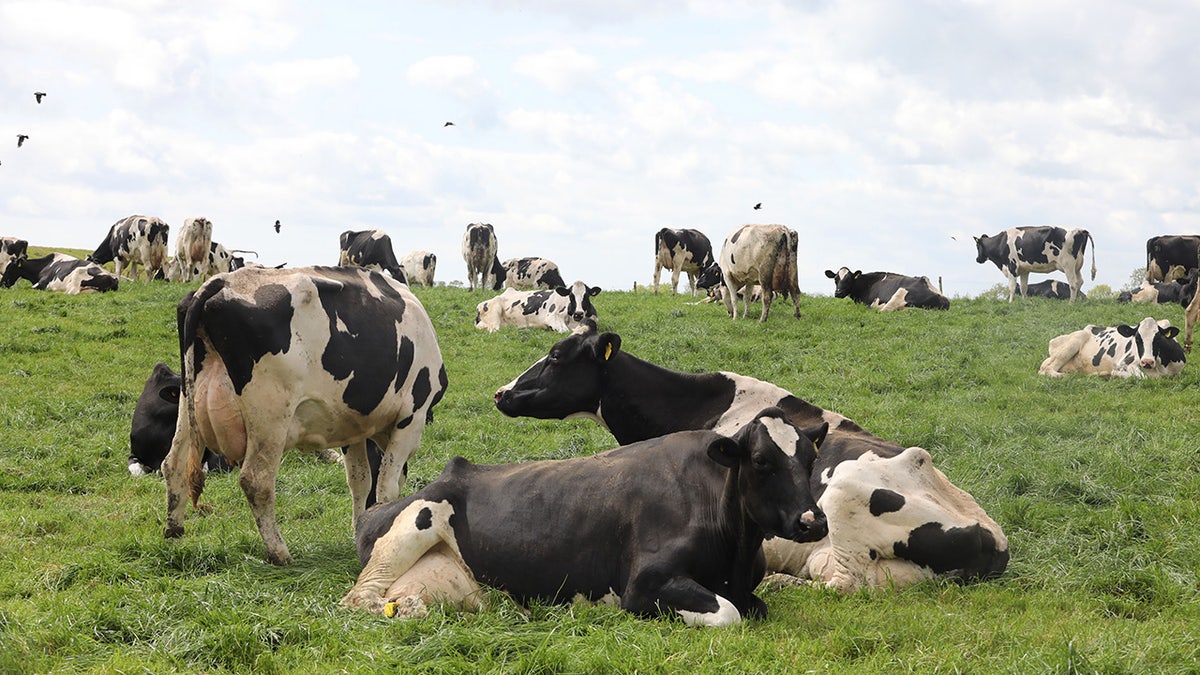Irish politician demands Parliament reconsider plan to cull 200,000 cows to meet EU climate pressure
Irish politician Peadar Tóibín alerted Parliament to figures in the Farming Independent showing 200,000 cattle could be culled by 2025, citing "an incredible threat to the farming sector." (Credit: Aontú/ Facebook)
Ireland officials are discussing a plan to cull around 200,000 cows in an effort to combat climate change, according to multiple reports, causing backlash from Irish farmers.
Amid the pressure from the European Union to fight climate change, one of the proposed plans would take place over three years by farmers voluntarily culling 65,000 cows a year, which would reduce the national dairy herd by 10%, and cost roughly $214 million annually, according to the Telegraph.
In a statement provided to Fox News Digital, a PETA spokesperson said how the dairy industry already "routinely slaughters ‘spent’ cows on a massive scale to boost profits."
"Hiring government kill squads as a solution to the climate catastrophe is ridiculous when a global shift to vegan eating would discourage farmers from breeding these animals in the first place," the spokesperson said, adding that "PETA encourages everyone to start taking personal responsibility for saving the planet by going vegan."

COUNTY DOWN, NORTHERN IRELAND - MAY 27: A group of cows lay on the grass during day at Millview Farm in County Down, Northern Ireland on May 27, 2023. ((Photo by Conor McCaughley/Anadolu Agency via Getty Images))
The cull, if decided upon, would be entirely voluntary and serve as part of a "retirement exit scheme" for farmers.
Senator Pauline O'Reily, a member of Ireland's Green Party, said farmers won't restock herds at the same level, thus reducing the overall cow population overtime.
"Over time, farmers don’t restock to the same level, as they did, so that over time, their herds are reducing," she said, "It isn’t a cull that is taking out cows and killing them, that’s not what it is. And that creates huge fear and anxiety amongst farmers."
"Actually what this is, is an exit scheme for dairy farmers, I come from a dairy farming background myself, that the farmers themselves have asked for, and have called for. Because they can see the schemes, the environmental schemes that are oversubscribed. Every single environmental scheme in the country is oversubscribed. Farmers want to sign up to it, and dairy farmers also want to scheme, so that they can sign up to it, so that they get money in their pockets if they do reduce their herds. But it’s completely voluntary," she added.
According to a response from a spokesperson for the Department of Agriculture, Food and the Marine, the policy is one of a number of "modeling documents" that is considered by the department, and a "final policy decision" had not been made.
"As part of the normal work of Government Departments, various options for policy implementation are regularly considered," the Department stated.
According to the Environmental Protection Agency, Ireland's agricultural sector accounted for 38% of national Greenhouse Gases (GHGs) emissions in 2021. The predominant byproducts were methane from livestock, and nitrous oxide from the use of nitrogen fertilizer and manure management.

Carolyn Retberg leads a cow to pasture after the morning milking at the Quill's End Farm, Friday, Sept. 17, 2021, in Penobscot, Maine. A ballot question in will give Maine voters a chance to decide on a first-in-the-nation "right to food amendment." (AP Photo/Robert F. Bukaty)
CLICK HERE TO GET THE FOX NEWS APP
Methane gas from livestock contributes to a major portion of the world greenhouse gasses, with methane accounting for 44% of total livestock emissions, according to Food and Agricultural Organization of The United Nations.
In an effort to curb emissions from animals and livestock, other countries have also considered culling large numbers of animals to meet climate goals.
